125+ Ways to Say GOODBYE in Different Languages (WITH Pronunciation!)
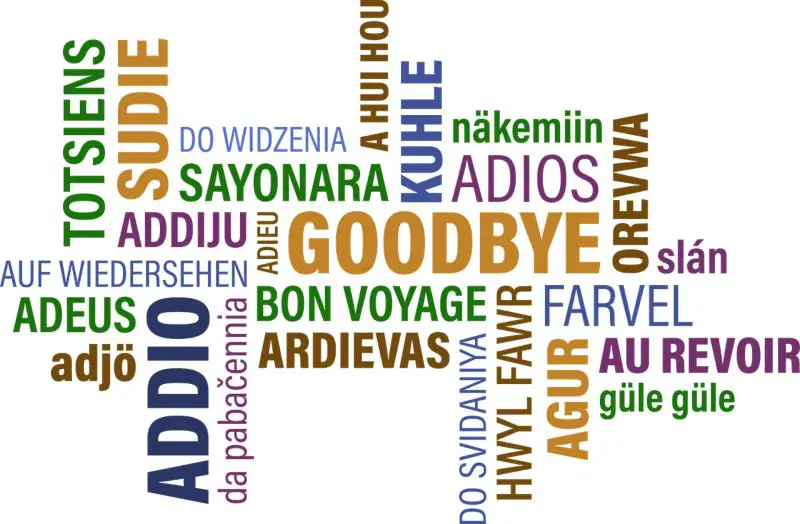
GOODBYE. That one word charged with a whole lot of emotion, traditionally said to bid farewell when leaving or parting ways. Along with hello, thank you, and I love you -> goodbye is one of the most commonly used travel words around the world. And knowing how to say goodbye in different languages is a life skill worth having.
Read on to find to exactly that…
Did you know:
Where does the term good bye come from?
The word goodbye originates from the term “Godbwye”
a contraction of the phrase “God be with ye.”
This conveys a prayer, a blessing, or hope that the person upon whom it is bestowed will travel safely.
Over time, it is believed the phrase, influenced by other related terms, transitioned from “god be with ye” to god-b’wye to good-b’wy, and eventually ending in today’s blessing of goodbye.
Why do we say goodbye?
Life happens. People move away. Goodbye, which started out as a form of blessing, is now used as a polite way to take one’s leave or to express emotion on parting ways. Despite the difference in etymologies, terms of goodbye are similarly conveyed across different cultures and languages.
If you wanted to say farewell to every person in the world, you would need to learn those words of bye from over 5,100 languages. Fortunately, just by reading this guide I have put together for you, you will be able to say good bye to over 90% of the world’s population 🙂
So whether you find yourself in Africa, Europe, Asia, or Latin America… I’ve got you covered with this goodbyes in different languages list.
Be sure to bookmark and save this post for future use and ease of reference.
A simple ‘good bye‘ is likely to be one of the first words you’ll use when travelling and it’s always a good idea to know a few words in the language of the country you’re visiting. It is, in a way, a tool to explore an entirely new culture, build lasting impressions, and make friends of strangers. Here’s your definite guide on how to say good bye in different languages around the world.
Want to learn how to say HELLO too?
Read this guide on how to say hello in different languages of the world.

GOODBYE IN DIFFERENT LANGUAGES
Here’s your ultimate guide on 125+ ways on how to say goodbye in different languages around the world. Every language….
With pronunciation.
In brackets you will find how to pronounce the word as it can often be difficult to know how to vocalise the word just by reading or looking at the direct translation.
Are you ready to take a trip and learn how to say farewell to everyone around the world?
I have included goodbye in all languages of the world I could think of. If you don’t spot your language, let me know (in the comments) and I will be happy to add it to this list.
Let’s go… Be sure NOT to miss the bonus at the end ↓↓
Want to learn how to say GOOD MORNING AND GOOD NIGHT too?
Read this guide to say good morning in different languages or
this one good night in different languages
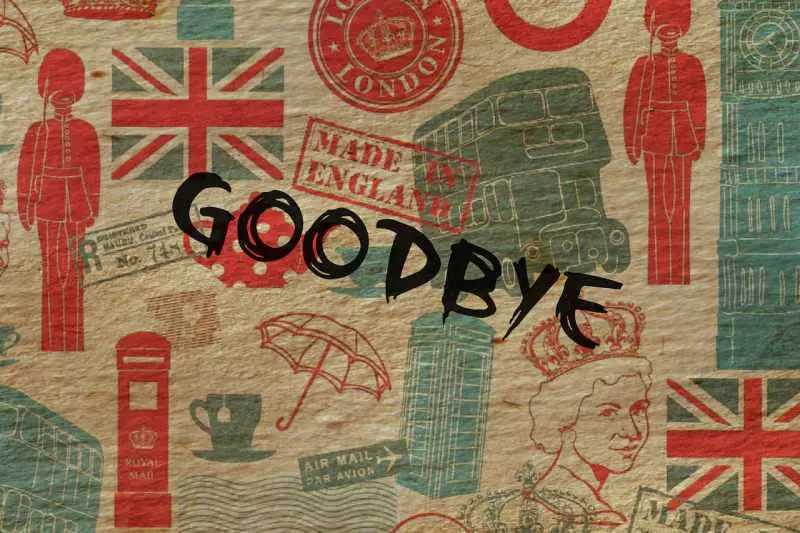
How do you say good bye in a different language? Goodbye in other languages of the world here ↓
Let’s get into it…
Here’s how you say “bye” in:
Afrikaans
How to say good-bye in Afrikaans:
- totsiens
— a South African term most commonly used in Afrikaans when parting ways in South Africa. The word is actually a combination of Dutch words tot ‘until’ and zien ‘see’ and means ‘until we meet again.’
Pronunciation: TOTE-seens - tot weersiens
— a casual way of saying bye, meaning: so long
Pronunciation: TOTE-veer-seens - wederdom/tot wederom
— another informal way of greeting, meaning: see you again soon
Pronunciation: TOTE-VAY-der-OM - koebaai
— informally used; derived from English ‘goodbye’
Pronunciation: ko-BAI - baai
— casually used; derived from the English ‘bye’
Pronunciation: bai - arriewarie
- vaarwel
— a formal farewell greeting in Afrikaans
Pronunciation: far-VEL
Afrikaans is a West Germanic language of Southern Africa mostly derived from Dutch. It developed as Dutch settlers and indigenous African mixed languages beginning in the 17th century. Today, an estimated 15 to 23 million people call Afrikaans their mother tongue. It is mainly spoken in South Africa and Namibia and can also be heard in parts of Botswana and Zimbabwe.
Albanian
- lamtumirë
- tung
— an informal way to say bye - mirupafshim
— used formally and pronounced as meer-oo-PAHF-sheem - shëndet
— informal way meaning bless you and pronounced as shuhn-DEHT
Albanian is an Indo-European language, spoken mainly in Albania and Kosovo, though it is also spoken in other areas of the Balkans. With about 7.5 million speakers, it comprises an independent branch within the Indo-European languages and is not closely related to any other language in Europe.
Amharic
Good bye in Amharic is:
- ቻው (chaw)
— most of the people use the informal ciao - ደህና ሁን (dähna hun)
— used if you’re saying goodbye to a man - ደህና ሁኚ (dähna hunyi)
— used if you are saying goodbye to a woman - ደህና ሁኑ (dähna hunu)
— to say goodbye to a group of people
This form is also used if you are using respect to refer to someone, such as if you are speaking to an elderly person
Amharic is a Semitic language and the official language of Ethiopia. Foreign goodbyes not only means farewell but also peace be with you. It can also be heard in Egypt and Eritrea, as well as in Israel, Sweden, Canada and the United States.
Arabic
How to say good-bye in Arabic:
- ma’a as-salaama
— a formal, polite way of saying goodbye in arabic
مع السلامة means with safety/peace - salaam
is an informal salutation in the Arabic language that is used for both hello and goodbye - You could also use the formal as-salaamu ‘alaykum
السلام عليكم translates as: Peace upon you
Arabic (العربية) is a Semitic language spoken by over 420 million people as their first language in areas including North Africa, the Arabian Peninsula, and other parts of the Middle East. Many more people can also understand it as a second language. Modern Standard Arabic is the liturgical language for 1.6 billion Muslims and is the official written form of the language with the Arabic alphabet, which is written from right to left.
Armenian
- Ց’տեսություն (Ts’tesut’yun)
— pronounced: ts-teess-uts-yun - Հաջողությո’ւն: (hajoghutyun)
— means good luck but is a way of saying goodbye - araizhm is often used casually to say see you soon
Armenian is an Indo-European language spoken in the Republic of Armenia, as well as in large communities of Armenian diaspora by around 6.7 million people.
Azerbaijani
- salamat qalın
— a formal way to say goodbye in Azerbaijani - görüşənədək
— another formal greeting - sağolun
— this is used informally to bid farewell - xudahafiz
Azerbaijani or Azeri is the primary and official language of Azerbaijan by its 8.8 million native speakers. It is also widely spoken in Northern Iran and to a small extent in southern Dagestan, the Kvemo Kartli region of Georgia, eastern Turkey, in Shia cities of Iraq, like Karbala and Kirkuk. The language is a Turkic language and is highly intelligible with modern-day Turkish.
Basque
- agur
- gero arte
— you could also use this to say see you later
Basque (euskara) is a language spoken in the Basque Country (Gipuzkoa, Araba, Bizkaia) and Navarra (in Spain) as well as in the French Basque Country (Labourd, Soule and Basse-Navarre). Linguistically, Basque is a language isolate and is unrelated to the other languages of Europe.
Bavarian / Austrian German
- servus
— a very traditional, common, informal, and flexible word that can be used either as hi or as bye in different languages - bfiad di
- bfiad aih (plural)
- auf Wiedersehen or wiedersehen
— used formally to say farewell
Bavarian is a regional dialect of German spoken in the German state of Bavaria, western Austria, and Northeastern Italy by over 14 million people. It uses German grammar, but takes several root words from Latin.
Belarusian
- да пабачэння da pabačeńnya
- Да спаткання da spatkannja
- Убачымся ubačymsia
Belarusian is the official language of Belarus. This East Slavic language is also spoken in Russia, Ukraine, and Poland.
Bengali
- Bidāẏa বিদায় (নিচ্ছি
— a common way of greeting goodbye in Bengali. Meaning: I take your farewell - Additionally bhaalo thaakben ভালো থাকবেন or bhalo theko ভালো থেকো
is used to stay take care - বাই pronounced as in the English bye is commonly used these days.
Bengali বাংলা is the only official language of Bangladesh, one of the 22 official languages of India, and the sixth most spoken language in the world. It is spoken as a first language by the majority of the population in Bangladesh, as well as people in the Indian state of West Bengal.
Berber
- Sahit
- Ar tufat
- Kiaoun Rabi
Berber, also known as the Amazigh languages, is a branch of the Afroasiatic language family that comprises of around forty closely related languages spoken by the Berbers. The Berber people are indigenous to North Africa, with the heaviest concentration found in Morocco. The major Berber languages include Tamazight, Tarifit, Tashelhit (Tashelhiyt, Tashelhait, Shilha), Kabyle, and Tamahaq.
Bodo
- गोजोन्थों unao lwgw mwnai
— See you later
Bodo बर’/बड़ is the Sino-Tibetan language spoken primarily by the Bodo people of Northeast India, Nepal and Bengal. It is official language of the Bodoland Autonomous region and co-official language of the state of Assam in India.
Bosnian
- zdravo
- zbogom
- ćao
— pronounced chaoo used informally - do viđenja
— used formally pronounced as doh-vee-JEH-nyah
Bosnian, a south Slavic language of the Indo-European family, is the official language of Bosnia and is essentially the same language as Croatian and Serbian. All three languages used to be known as Serbo-Croatian before the break-up of Yugoslavia.
Brazilian Portuguese
- adeus
— a formal way to say goodbye in Brasil - tchau
— informal/casual - You could also use:
até logo (atey low-goo) – see you later;
até depois (atey day-poys) – see you later, or
até amanhã (atey aman-yah) – see you tomorrow
Brazilian Portuguese (Português do Brasil) is the variety of Portuguese dialect spoken in Brazil. It is spoken by virtually all of the 200 million inhabitants of Brazil and spoken widely across the Brazilian diaspora. European Portuguese differs from the Brazilian variety in pronunciation, as well as in some vocabulary.
Breton
- kenavo
- ken ar wech all
Breton is a Southwestern Brittonic language of the Celtic language spoken in Brittany in the northwest of France.
Bulgarian
Say goodbye in Bulgarian:
- Довиждане doviždane
— formal greeting of saying good-bye in Bulgarian - Чао (čao)
— informal
Bulgarian is a South Slavic language spoken in Southeastern Europe, primarily in Bulgaria. It is the country’s only official language and Bulgarian is written with Cyrillic.
Burmese
- သွားတော့မယ် (swarrtotmaal)
- ဘိုင်။ (bhine)
- ဘိုင်ဘိုင်။ (bhinebhine)
- ta ta
Burmese is a Sino-Tibetan language spoken in Myanmar where it is an official language and the language of the Bamar people, the country’s principal ethnic group.
Cambodian Khmer
- លាហើយ leahaey
- លាសិនហើយ léa sĕn haeuy
- choum reap lear
— this is the formal good-bye greeting in Khmer, pronounced jom REE-up LEE-er - susaday
— more informal and reserved for casual situations
Khmer is the language of the Khmer people and the official language of Cambodia. With over 16 million speakers, it is the second most widely spoken Austroasiatic language.
Catalan
- adéu
— pronounced ah-deh-ou - a reveure
— can also be used, meaning see you
Catalan is a Western Romance language derived from Vulgar Latin and named after the medieval Principality of Catalonia, in northeastern of modern Spain. It is the only official language of Andorra, and a co-official language of the Spanish autonomous communities of Catalonia, the Balearic Islands in Spain and Valencia.
Chichewa
- bayi
— bye - ndapita
— I’m going - yendani Bwino
— go well
Chichewa, also known as Nyanja, is a Bantu language spoken in much of Southern, Southeast and East Africa. It is the national language of Malawi and is also spoken in Zambia, Mozambique and Zimbabwe.
Chinese Cantonese
How to say good-bye in Chinese Cantonese:
- joigin 再見
— pronunciation: JOI-gin. A formal way to say goodbye - bāai baai 拜拜
— pronunciation: bai-bai. Used casually to say bye - chí dī jiàn 遲啲見
— used to say, ‘see you later’
Cantonese is a variety of Chinese originating from the city of Guangzhou and its surrounding area in Southeastern China. Belonging to the Sino-Tibetan family of languages, it is the traditional prestige variety of the Yue Chinese dialect group, which has about 68 million native speakers.
Chinese Mandarin
- zài jiàn 再见
— a formal way to say goodbye in Mandarin.
Pronunciation: tzai-JIEN. - míng tiān jiàn 明天見/明天见
— this means, I’ll see you tomorrow
Pronunciation: miin-tyen-JIEN - yī huĭr jiàn 一會兒見/一会儿见
— used when parting ways, but seeing someone later on the same day
Pronunciation: ee-hwur-JIEN - huí tóu jiàn 回頭見/回头见
— also means see you later
Pronunciation: hway-toh-JIEN
Mandarin Chinese is the official language of Mainland China and Taiwan, and is one of the official languages of Singapore. Mandarin is often placed first in lists of languages by number of native speakers with almost a billion speakers.
Corsican
- avvedeci
— the most commonly used way of saying goodbye in Corsican - à a prossima
— see you next time - à dopu
— see you later
Corsican is a Romance language from the Italo-Dalmatian family that is spoken predominantly on the Mediterranean island of Corsica. Corsican is closely related to Tuscan and to the Florentine-based Italian.
Croatian
Say goodbye in Croatian:
- doviđenja
— used formally to say goodbye, meaning: until we see again
Pronunciation: doh-vee-JEN-ya - pozdravite
- bog
— a common way of saying goodbye. It literally means ‘God,’ but is pronounced BOK so it is differentiated from the word God - idi s bogom
— this means ‘go with God’ and pronounced: ee-Dee’s Boh-gom - ćao
— a casual way to say bye, from the Italian word ciao. The pronunciation is also the same: CHOW
Croatian or Hrvatski is a South Slavic language spoken mainly in Croatia, Bosnia and Herzegovina, some parts of Serbia, and the neighbouring countries by about 5.5 million people.
Czech
- sbohem
— the most common way to say goodbye in Czech.
Pronunciation: sbo-HEM - na shledanou
— used formally.
Pronunciation: nah-SKLE-dan-oh - ahoj
— used informally in Czech to say ‘see you’
Pronunciation: a-HOY - čau
— a casual bye
Czech is a Western Slavic language which is mutually intelligible with Slovak. It is mainly spoken in the Czech Republic with over 10,5 million speakers.
Danish
- farvel
— a formal greeting of goodbye in Danish.
Pronunciation: fa-VEL - hej hej
— an informal way to say bye. Pronunciation: hey-hey - vi ses
— meaning: see you. Pronunciation: VEE-saiss
Danish is a Scandinavian language and the only official language of the Kingdom of Denmark. Closely related to Swedish and Norwegian, it is spoken in Denmark and in some parts of Greenland and northern Germany.
Dutch
- dag
— the most common way of saying goodbye in Dutch. Literally means ‘day’ as in ‘good day’
Pronunciation: DACH - tot ziens
— a way to say see you later
Pronunciation: tut-ZEENS - doei or doeg
— a casual way of saying bye (“DOO-ey” or “dookh”)
Dutch is a West Germanic language spoken by about 27 million people world-wide mostly in the Netherlands, northern Belgium, and Suriname.
Dzongkha Bhutanese
- ལོག་ཤུལ་ལས་འབྱལ་གེ། (Lok shu ley jel gey)
— see you later - ཡ་ཡ། ཡར་སི་མས། (Yaya. Yasi mey)
— okay. Bye - Le Shim Bay Jo eh
Dzonkha or Bhutanese is the sole official and national language of the Kingdom of Bhutan. This Sino-Tibetan language is spoken by over half a million people in Bhutan and is written with the Tibetan alphabet.

English
10 ways to say goodbye in English:
- goodbye or bye
— this is the standard farewell greeting, (pronounced: gud-bai) - bye bye
— a casual friendly way of saying bye, used commonly with/by children
Alternatively, you can also use any of the following for other ways to say bye in English: - see you later or see you soon
- catch you later
- I must be going or time to get going
- take it easy
- I’m off
- until next time
- farewell
- don’t be a stranger
- so long
- talk again later
- take care
English is a West Germanic language that was first spoken in Anglo-Saxon England in the early Middle Ages. It is spoken in many countries around the world with over 375 million native speakers. English is the second most spoken language, and the most international language in the world.
Estonian
- hüvasti
— the most common way of saying goodbye in Estonian - nägemist
— you could also use this informal greeting - head aega
- maga hästi
— meaning sleep well
Estonian is a Finno-Ugric language spoken as the official language in Estonia. It is closely related to Finnish.
Faroese
- farvæl
- bei
- vit síggjast
Faroese is a North Germanic language spoken as a first language by Faroe Islanders, residing on the Faroe Islands and in other areas, mainly Denmark.
Farsi / Persian
How to say good bye in Persian:
- khodaa haafez خداحافظ
- bedrood بدرود
- be salâmat
- kheyr pish
- felan فعلا
— is a more casual goodbye to use with friends.
Persian is an ancient language belonging to the Iranian branch of the Indo-Iranian subdivision of the Indo-European languages. It is a pluricentric language predominantly spoken and used officially within Iran, Afghanistan, and Tajikistan.
Fijian
- moce
- ni sa moce
Fijian is an Austronesian language of the Malayo-Polynesian family. It is an official language of Fiji spoken by some 350,000–450,000 ethnic Fijians as a native language.
Finnish
- näkemiin
— (NAK-eh-meen) is a formal way of farewell - heihei
— (HAY-hay) is a neutral way of saying goodbye in Finnish. - moimoi (MOI-moi) and moikka (MOIK-ka)
— are more casual ways of saying goodbye in Finnish
Finns usually greet each other in an informal way, so you can use the casual greetings in 99% of all situations.
Finnish is a Finno-Ugric language spoken only in Finland as the official language and by ethnic Finns elsewhere in Scandinavia.
Flemish
- saluu
- tot ziens
Native to the historical region of Flanders in northern Belgium, Flemish is a Low Franconian dialect cluster of the Dutch language. It is sometimes referred to as Flemish Dutch, Belgian Dutch, or Southern Dutch spoken by over 6 million people.
French
How to say goodbye in French:
- au revoir
— the most common way of saying goodbye in many languages and translates as ‘to the seeing again’. It is used when anticipating a meeting in the future. Pronunciation: oh-VWAHR - adieu
— a means to say farewell. Pronunciation: ah-DYØH - à bientôt
— this means see you soon. Pronunciation: ah-bee-EN-toe - à demain
— used when parting ways, but with an expectation of a meeting the following day. Pronunciation: ah-DE-mah. Meaning: see you tomorrow
Another informal greeting is ciao, an Italian word commonly used in France.
French is a Romance language of the Indo-European family spoken by over 354 million people in France and around the world. It is the third most spoken language in Europe, the official language of 29 countries, spoken in parts of Africa, North America, and South America.
Frisian
- adjiis
- tjüüs
- oant sjen
The Frisian languages are a closely related group of Germanic languages, spoken by about 500,000 Frisian people, who live on the southern fringes of the North Sea in the Netherlands and Germany.
Georgian
- მშვიდობით (nakhvamdis)
Georgian is the official language of Georgia and the country’s most widely spoken language with over 4.1 million people.
German
Learn how to say good bye in German:
- auf wiedersehen
— used formally in German when saying good-bye.
Pronunciation: owf-VEE-der-zayn - tschüss
— used informally to say bye in German. Pronunciation: CHÜSS - bis dann
— meaning: until then. Pronunciation: BISS-dun - bis bald
— meaning: until soon. Pronunciation: BISS-balt - bis später
— meaning: until later. Pronunciation: bis-SHPAY-ta - tschau
— from the Italian word ciao, meaning bye and pronounced the same way: CHOW - ade
— a casual bye. Pronunciation: ah-DAY
German Deutsch is the official language of both Germany and Austria and one of the three official languages of Switzerland. German belongs to the West Germanic group of the Indo-European language family. One of the major languages of the world, German is a native language to almost 100 million people worldwide and the most widely spoken native language in the European Union.
Greek
How to say good-bye in Greek:
- αντιο σας (antio sas)
- Γειά σου (Ya su)
— to say goodbye when speaking informally to one person
Pronounced: YAH-soo - Γειά σας (Ya sas)
— used when speaking to more than one person or formally to one person
Greek (ελληνικά) belongs to the Hellenic branch of the Indo-European language family, mainly spoken in Greece and Cyprus an an official language. It has the longest documented history of any living Indo-European language, spanning more than 3000 years of written records. There are about 13.1 million speakers of Greek worldwide and it is recognised as a minority language in Albania, Armenia, Hungary, Italy, Romania, Turkey, and Ukraine.
Gujarati
- aavjo આવજો
Gujarati is an Indo-Aryan language native to the Indian state of Gujarat and spoken predominantly by the Gujarati people. Gujarati is part of the greater Indo-European language family.
Haitian Creole
Say goodbye in Haiti:
- orevwa
- adye
Haitian Creole (kreyòl ayisyen)) is a French-based creole language spoken by 10–12 million people worldwide and the only language of most Haitians. Along with French it is one of the official languages of Haiti.
Hausa
- sai an jima
- sai wata rana
Hausa language, the most important indigenous bridge language in West and Central Africa, spoken as a first or second language by about 40–50 million people. It belongs to the Western branch of the Chadic language family within the Afro-Asiatic language phylum. It is spoken mainly in northern Nigeria and Niger, and also in Benin, Burkina Faso, Cameroon, the Central African Republic (CAR), Chad, Congo, Eritrea, Germany, Ghana, Sudan and Togo.
Hawaiian
How to say good bye in Hawaiian:
- aloha
— this Hawaiian word is used for both welcome and farewell. Additionally, the word is also used as an expression of love and well wishes. In fact, this Hawaiian greetings are used so often, which is why Hawaii also goes by the nickname Aloha State.
The Hawaiian language is a Polynesian language that takes its name from Hawaiʻi, the largest island in the tropical North Pacific archipelago where it developed. Hawaiian, along with English, is an official language of the State of Hawaii, one of the best islands to visit.
Hebrew
- l’hitraot להתראות
- shalom שָׁלוֹם
— an informal salutation in the Hebrew language that is used for both hello and goodbye.
Shalom translates as peace, and for a formal farewell it is said as: - shalom aleichem שָׁלוֹם עֲלֵיכֶם
— meaning: peace be upon you
Hebrew is a Northwest Semitic language spoken by over nine million people worldwide. Historically, it is regarded as the language of the Israelites and their ancestors. It is written using its own script from right to left.
Hindi
How to say goodbye in Hindi:
- namaste अलविदा
- phir milenge फिर मिलेंगे
— used as, see you later or see you again - alvida
— a formal term
Hindi (हिन्दी) is an Indo-European language spoken in India, Nepal, and throughout the Indian diaspora. Hindi is descended from Sanskrit, sometimes called “the mother of all languages.” While there are 22 official languages and over 1,000 dialects of India, Hindi and English take precedence in government affairs. It is a link-language for over half of India’s population.
Hmong
- sib ntsib dua (she jee doua)
- koj mus koj
- mus zoo
Hmong is a Hmong-Mien language spoken by about 2.6 million people in China, Vietnam, Laos, Thailand, USA, and French Guiana.
Hopi
- nu’ tus payni
— used by the person leaving - um ason piw a’ni
— used in response to the person leaving
Hopi is a Uto-Aztecan language spoken by the Hopi people in northeastern Arizona, USA.
Hungarian
How to say goodbye in Hungarian:
- viszontlátásra
— used formally in Hungary to bid farewell - viszlát
— used informally - szia
Hungarian is a Uralic language of the Ugric branch spoken in Hungary and parts of several neighbouring countries. It is the official language of Hungary and one of the 24 official languages of the European Union.
Icelandic
- bless
- vertu sæll
- sé þig seinna
— meaning see you later and pronounced as seh-beeg-sayonna
Icelandic (íslenska) is a North Germanic language spoken in Iceland as its official language. It’s most closely related to Faroese and Western Norwegian and has around 314,000 speakers. The language is more conservative than most other Western European languages.
Indonesian Bahasa
- selamat tinggal or selamat jalan
— both used when saying foreign goodbyes in Bahasa, but the first is generally used when you’re the one leaving, while the second is used when you’re the one staying. - sampai jumpa
— used as an informal way of saying see you. - daag used casually
Indonesian (bahasa Indonesia) is the official language of Indonesia.With over 230 million speakers, it is one of the most widely spoken languages in the world. It is a group of varieties of Malay, an Austronesian language that has been used as the common language in the multilingual Indonesian archipelago for centuries. Indonesia uses the Latin alphabet system and Arabic numerals.
Inuktitut
- ᐃᓛᓂᓗ Ilaanilu
- ᑕᓪᕙᐅᔪᑎᑦ Talvauyutin/Tagvauyutit
Inuktitut is an Eskimo-Aleut language spoken in Arctic territories and the topmost span of North America including Alaska and Northern Canada.
Irish
- slán
— pronounced: slawn - slán go fóill
Irish (Gaeilge) is one of the three Goidelic languages, along with Scottish Gaelic and Manx. This Goidelic branch together with the Brythonic branch (Welsh, Cornish and Breton) form the Celtic language family.
Italian
How to say goodbye in Italian:
- arrivederci
— the most common way of saying goodbye in Italiano. While there are other ways to say farewell in Italian, arrivederci works in almost every situation.
Pronounced ah-ree-veh-DEHR-chee, it translates to ‘until we see each other again’. - ciao
— an informal salutation in the Italian language that is used for both hi and bye.
(Pronunciation: CHOW)
Ciao is internationally known as a way to say goodbye in a different language, with some other languages having adopted their own spellings of it. You could probably use it almost anywhere in the world to bid farewell and people will know what you mean. - addio
— an informal or casual way of saying bye. Pronunciation: ahd-DEEH-oh.
Italian (Italiano) is a Romance language of the Indo-European language family spoken by over 90 million people, the vast majority of which are in Italy, Sicily, and Sardinia. It is the official language of Italy, San Marino, and the Vatican City, closely descended from Latin.
Japanese
Saying goodbye in Japanese:
- sayōnara さようなら
— short for sayō naraba, which literally translates to ‘if it be thus’. The term is used to comment something has been finished, abandoned, or committed to the past. However, this is used for people whom you may not see for awhile, or it can be used with teachers.
Pronunciation: sai-OH-nar-ah
In any case, there are other ways to say goodbye in Japanese that are much more common: - jāa ne じゃあね
— as an informal way of saying goodbye to friends.
Meaning: see you and pronounced as: JAH-neh - jā mata ne じゃあまたね
— another informal way of saying goodbye, meaning: see you again
Pronunciation: JAH-ma-ta-neh - shitsurei shimasu しつれいします
— used in a more formal situation as a polite way of excusing yourself.
Japanese (日本語 Nihongo) is an East Asian language of the Japonic language family. It is spoken by about 125 million people, mostly in Japan, where it is the official and national language. Bowing, dating back to the 5th century, is a huge part of Japanese culture and is a sign of respect. In Japan, people readily bow to one another rather than actually saying the words.
Jamaican Patois
- mi gaan (I’m gone)
- likkle more
- likkle more den
Jamaican Patois, often also referred to as Jamaican Creole, is an English-based creole language with West African influences spoken mainly in Jamaica. Belonging to the English Creole language family, it is spoken by the the majority of Jamaicans with over 3 million native speakers.
Kannada
- ವಿದಾಯ mattae sigona
— used to say meet you again sometime
Kannada, spoken by nearly 45 million native speakers, is a Dravidian language of the people of Karnataka in southwestern India, and by significant linguistic minorities in the states of Maharashtra, Andhra Pradesh, Tamil Nadu, Telangana, Kerala, and abroad.
Kazakh
- cау болыңыз (saw bolıñız)
Kazakh is a Turkic language of the Kipchak branch spoken in Central Asia and the official language of Kazakhstan. The language comprises 21 million native speakers including regions of Bayan-Ulgii in Mongolia and the Dzungarian region of Xinjiang, China.
Korean
Good bye in Korean:
- 안녕 annyeong
— this is the simplest and easiest way to say goodbye. (Pronunciation: AN-nyeong).
used in an informal way of saying hi or bye to close friends and family and those younger than you. - anyeonghi gasyeo 안녕히 가세요
— for a more polite goodbye (if you’re staying and the other person is leaving). Pronunciation: AN-nyeong-HE-ga-SEH-yo - annyeonghi Kyeseyo 안녕히 계세요
— Meaning: goodbye (if you’re the one that is leaving)
Pronunciation: AN-nyeong-HE-gye-SEH-yo - 잘 가 jal ga
— meaning go well. Used to say to the person that is leaving
Korean, an East Asian language, is the official language of South Korea (Republic of Korea) and North Korea (Democratic People’s Republic of Korea) spoken by more than 75 million people.
Kurdish
- bi xatre te
- xwa-legell
— meaning God be with you
Kurdish is spoken by about 30 million Kurds in western Asia including parts of Kurdistan, Iraq, Turkey, Iran, and Syria. It is one of the Indo-Iranian languages, ranks as the third largest Iranian language, after Persian and Pashto.
Kyrgyz
- kайырлуу кеч (kayryluu kech)
Kyrgyz is a member of the Kipchak branch of the Turkic language family spoken by over 4 million speakers mainly in Kyrgyzstan, and also in China, Tajikistan, Afghanistan and Turkey.
Lao
- ລາກ່ອນ la kon
— goodbye stay well - ໄປດີ pai di
— go well - ໂຊກດີເດີ້ sôhk dii doe
— good luck
Lao is the main language of Laos. It is a Kra–Dai language serving as a common language among all citizens of Laos, who speak approximately 90 other languages, many of which are unrelated to Lao. Modern Lao is heavily influenced by the Thai language and comprises over 30 million native speakers.
Latin
How to say goodbye in Latin:
- vale
— used to say goodbye in Latin. The word originates from the singular imperative of the second person valēre that means ‘to be well’. Vale is used when addressing one person. - valete
— to more than one person
Latin was the dominant language of the Roman Empire from 6th century BC to 600 AD. When the Roman Empire collapsed, Latin evolved into the various languages that we know today. Italian, French, Portuguese, Spanish, and Romanian all consider Latin as their parent tongue. Latin is a classical language belonging to the Italic branch of the Indo-European languages.
Latvian
- uz redzēšanos
— formal usage pronounced as ooz REHD-zehh-shuh-nohs - ardievas
- atā
— informal pronounced as UH-tahh
Latvian (latviešu valoda) is an Indo-European Eastern Baltic language spoken in the Baltic region. It is the official language of Latvia and one of the official languages of the European Union.
Limburgish
- adieje
Limburgish is a member of the East Low Franconian group of the Germanic languages considered a variety of German or Dutch by many people. It is spoken by around 1.6 million people in the Netherlands and Belgium.
Lingala
- tokomonana
— used formally to say goodbye in Lingala - kende malamu
— go well - tikala malamu
— stay well
Lingala is a Bantu language spoken throughout the northwestern part of the Democratic Republic of the Congo and a large part of the Republic of the Congo by over 70 million people.
Lithuanian
Good bye to you in Lithuanian:
- sudie
- viso gero
— pronounced vee-saw gheh-raw
Lithuanian (lietuvių kalba) is an Eastern Baltic language spoken in the Baltic region as the official language of Lithuania. It is also one of the official languages of the European Union spoken by just under 3 million native speakers. The language is one of the oldest in the world.
Luxembourgish
- äddi
Luxembourgish is a West Germanic language that is spoken mainly in Luxembourg. About 390,000 people speak Luxembourgish worldwide.
Luganda
- weeraba
— singular way of saying goodbye in different languages - mweraba
— plural - tunaalabagana
— see you later
Luganda, a Bantu language, is an official language of Uganda along with English and Swahili. It is spoken primarily in Kampala, but may be understood in much of the country and in the African Great Lakes region.

Macedonian
- Чао (čao)
— casual bye - Довидување doviduvanye
— formal greeting pronounced doh-vee-DOO-vah-nyeh - Догледање dogledanje
- пријатно prijatno
Macedonian, the official language of the Republic of North Macedonia, is a south Slavic language spoken as a first language by 2 million people.
Malagasy
- veloma
- mandra-pihaona
— see you later
Malagasy is the national language of Madagascar belonging to the Austronesian Malayo-Polynesia family of languages spoken by 25 million people.
Malay
- selamat tinggal
— said if you’re leaving - selamat jalan
— said if you’re staying to the one leaving - sampai jumpa lagi
— another way of saying goodbye in Malay, which can be used whether you’re staying or leaving.
Malay (Bahasa Melayu) is an Austronesian language spoken as the sole official language of Malaysia and Brunei. It is also heard in Indonesia, Singapore, and Thailand at a total of 250 – 300 million speakers.
Malayalam
- വിട vida parayunnu
- pinne kanam
- വീണ്ടും കാണാം vīṇṭuṁ kāṇāṁ
Malayalam (മലയാളം) belongs to the Dravidian language family, spoken mostly in the Southern Indian states of Kerala and Lakshadweep. Around 36 million people use this language, which is one of the 22 official languages of India.
Maltese
Say bye in Maltese:
- addiju
- ćaw
- saħħa
Maltese, a language of central Semitic origin written in the Latin script, is the national language of the island of Malta. It is spoken by around 420,000 people on the Mediterranean islands of Malta, Gozo and Comino. The Maltese language developed from Sicilian Arabic, Over the centuries, it has incorporated many words derived from English, Italian and French.
Maori
- poroporoaki
- e noho rā
- ka kite anoo
Māori is an Eastern Polynesian language spoken by the Māori people, the indigenous population of New Zealand. it has also gained recognition as one of New Zealand’s official languages.
Marathi
- गुडबाय punha bhetu
- येतो yeto
— male - येते yete
— female
Marathi is an Indo-Aryan language spoken by around 83.1 million Marathi people of Maharashtra, India. It is the official language and co-official language in the Maharashtra and Goa states of Western India, respectively, and is one of the 22 scheduled languages of India.
Marshallese
- io̧kwe
— to one person - io̧kwe kom̧
— to more than one person - io̧kwe aolep
— goodbye everyone
Marshallese, also known as Ebon, is a Micronesian language spoken in the Marshall Islands by about 44,000 people. It is an official language of the Marshall Islands, along with English, and is used as the language of instruction in most primary schools.
Mongolian
- Баяртай bayartai
- Дараа уулзая daraa uulzii
— see you later
Mongolian is the official language of Mongolia and both the most widely-spoken and best-known member of the Mongolic language family. It is an Altaic language spoken by approximately 5 million people in Mongolia, China, Afghanistan, and Russia.
Moroccan Arabic
- Ma’a salama
- beslama
Moroccan Arabic, also known as Darija, is a form of vernacular Arabic spoken in Morocco. It is part of the Maghrebi Arabic dialect continuum, with over 30 million native speakers.
Nepali
Good-bye in Nepali:
- namaste नमस्ते
- pheri bhetaula फेरी भेटौँला
— see you again - pachi bhetaula
— see you later - bidaa hau बिदा हौ
— informal bye
Nepali (नेपाली), is an Indo-Aryan language of the sub-branch of Eastern Pahari written in Devanagari script It is the sole official language of Nepal and one of the 22 scheduled languages of India. While most Nepalese people speak at least some Nepali, there are more than 100 different languages and dialects spoken in Nepal.
Neapolitan
- stàtte
Neapolitan is a Romance language of the Italo-Dalmatian group spoken across much of southern Italy by 6 million people. It is related to but generally not mutually intelligible with Italian.
Northern Sotho
- gabotse
- re tlo bonana ka pela
— see you soon
Northern Sotho is a Bantu language spoken primarily in South Africa, where it is one of the 11 official languages. It is spoken by about 4.2 million people in the South African provinces of Gauteng, Limpopo and Mpumalanga.
Norwegian
Say good-bye you in Norwegian:
- hade
— this is the standard goodbye, which literally means, have it. Pronunciation: HA-day - ha det bra
— a variation of the standard bye above, meaning: have it good. Pronunciation: Ha-de-BRA - farvel
— can also be used, meaning: farewell different languages. Pronunciation: FAR-vel - vi snakkes
— meaning: talk to you later and pronounced: VEE-snuck-es
Norwegian (norsk) is a Germanic language derived from Old Norse spoken primarily in Norway by over 5 million people where it is the official language.
Odia
- ସୁବିଦାୟ shubidaaya
Odia is an Indo-Aryan language spoken in the Indian state of Odisha where it is the official language.
Oromo
- nagayattii
- nagaati
Oromo is a Cushitic language spoken by about 30 million people in Ethiopia, Kenya, Somalia and Egypt. It is the third largest language in Africa.
Papiamento
- ajo
— pronounced ah – yo
Papiamento is a Portuguese-based creole language spoken in the Dutch Caribbean by less than 500,00 native speakers. It is the most-widely spoken language on the Caribbean ABC islands, having official status in Aruba, Bonaire, and Curaçao.
Pashto
Farewell in Pashto:
- دخداى په امان (da khoday pa amaan)
Pashto is an Eastern Iranian language in the Indo-European family spoken in Afghanistan, Pakistan and Iran. It is an official language of Afghanistan along with Dari.
Polish
Say good bye in Polish:
- do widzenia
— a versatile expression expressing goodbye in Polish. - żegnaj
— pronunced as dzen-NAI (the “dz” sound is the same sound as the “si” in “vision”) - do zobaczenia
— used informally to say see you. Pronunciation: doh-zoh-bah-CHAN-ya
Polish (polski) is a West Slavic language spoken by about 45 million people. Said to be one of the hardest languages to learn, it is the official language of Poland. It is understood and can be used for communication in the western parts of Ukraine, Belarus and Lithuania.
Portugese
Learn of how to say good bye in Portuguese:
- adeus
— goodbye in Portuguese meaning may you go with God’s blessing. Pronunciation: Ah-deh-ooSH. - tchau
— considered slang, this is an informal way to say bye reserved for close friends. Pronounced as CHOW - até logo
— meaning: see you later. Pronunciation: Ah-TaY-Loh-GOO - até amanhã
— meaning: until tomorrow. Pronunciation: ah-TAY-ah-ma-NYANG
Portuguese (português) is a Romance language spoken as the official language of Portugal and Brazil. It is also the official language of Cape Verde, Guinea-Bissau, São Tomé e Principe, Angola, Mozambique, and the co-official language of East Timor, and Macau. There are around 250 million native Portuguese speakers worldwide.
Punjabi
- alweda ਅਲਵਿਦਾ
- rabb rakha ਰੱਬ ਰਾਖਾ
- guru rakha ਗੁਰੂ ਰਾਖਾ
Punjabi is an Indo-Aryan language with more than 130 million native speakers in the Indian subcontinent and around the world. It is the 10th most spoken language in the world.
Romanian
Say good bye in Romanian:
- la revedere
— pronunciation: LA-re-ve-DEH-re - rămas bun
— pronunciation: RAH-mas-boon. Meaning: farewell - pa
— A casual way of saying bye. Pronunciation: PA
Romanian (limba română) is a Balkan Romance language spoken by approximately 24–26 million people as a native language, primarily in Romania and Moldova, and by another 4 million people as a second language. Although it descended from Vulgar Latin, Romanian was influenced by Slavic and Greek languages in the Middle Ages. It is an official and national language of both Romania and Moldova.
Russian
How to say goodbye in Russian:
- do svidaniya До Свидания
— the most common goodbye greeting in Russian. Meaning: until the next time we meet
Pronunciation: Do-sve-DAN-ya - poka Пока
— a casual way to say bye.
Pronunciation: pa-KA
The difference between formal до свидания (do svidaniya) and informal casual пока (poka) is a big deal in Russian, so do take note of this. - do vstrechi До Встречи
— this means until we meet again
Pronunciation: DO-vtr-ETCHY - chao чао
— from the Italian ciao. чао in Russian can’t be used to say hello, only goodbye.
Russian is an East Slavic language spoken by 300+ million people worldwide. It is is an official language in the Russian Federation, Belarus, Kazakhstan and Kyrgyzstan, and many other people in Central Asia, the Baltic states, the Caucasus, and Eastern Europe know it as a second language.
Commonly written in Cyrillic, it is the 8th most widely spoken language in the world.
Samoan
- tōfā soifua
- tōfā
- fā
— a shortened form of the above used informally to say bye
Samoan is the official language spoken in the Samoan Islands, which is made up of the Independent State of Samoa and the American Samoa. The language is the most spoken of the Polynesian language family with a total of 510,000 speakers worldwide.
Scottish Gaelic
- beannachd leat
— an informal way of parting ways - beannacht leibh
Scots Gaelic is a Goidelic language of the Celtic and Indo-European language family, native to the Gaels of Scotland. As a Goidelic language, Scottish Gaelic, like Modern Irish and Manx, developed out of Middle Irish.
Serbian
- Довиђења (Doviđenja)
— a formal greeting of good bye - zdravo
- Ina hula kupa
- Ћао!
— an informal way of saying bye
Serbian is a South Slavic language spoken mainly in Serbia, Bosnia and Herzegovina, Montenegro, Croatia and Macedonia by about 9 million people. Serbian is the official and main language of Serbia and Montenegro.
Sesotho
- sala hantle
— said to the person staying - tsamaya hantle
— said to the person leaving
Sesotho (Sotho) is a Southern Bantu language of the Sotho-Tswana group, spoken primarily by the Basotho in Lesotho, where it is the national and official language, South Africa, where it is one of the 11 official languages and in Zimbabwe where it is one of 16 official languages.
Shanghainese Wu
- 再会 zä wēi
- 明朝会 minzō wēi
Shanghainese, part of the Sino-Tibetan language family, is a variety of Wu Chinese spoken in the central districts of the City of Shanghai and its surrounding areas by 10 – 14 million speakers.
Shona
- chisarai zvakanaka
- sara mushe
Shona, one of the most widely spoken Bantu languages, is the main language in Zimbabwe.
Sinhala
- ගිහිල්ලා එන්නම් gihin ennan
- මම යනවා mama yanawā
- nawatha hamu wemu
— an informal way of saying bye which means catch you later - subha dawasak
— meaning: have a nice day
Sinhala is an Indo-Aryan language spoken by approximately 16 million Sinhalese people in Sri Lanka and is one of two official languages of Sri Lanka.
Slovak
- dovidenia
— formal goodbye greeting in Slovak - čau
— an informal way of greeting good bye - ahoj
— another informal way of saying farewell
Slovak, the official language of Slovakia, is a West Slavic language where it is spoken by approximately 5.6 million people.
Slovenian
- nasvidenje
— good bye in Slovenian. Pronunciation: nas-VEE-dan-yeh - adijo
— pronunciation: ah-DEE-oh. Meaning: bye - čav
— pronunciation: CHAHV
Slovenian, an Indo-European language of the South Slavic language branch is the official and national language of Slovenia spoken by less than 3 million people.
Somali
- macsalaamo
Somali, an Afro-Asiatic language spoken by over 16 million people, is an official language of Somalia, a national language in Djibouti, and a working language in the Somali Region of Ethiopia.
Spanish
How do you say goodbye in Spanish:
- adios
— the most common and versatile goodbye greeting in Spanish
Pronunciation: ah-THYOHS (European Spanish); ah/DIOHS (Spanish of the Americas) - hasta la vista
— a casual way of saying goodbye, meaning see you later. Pronunciation: Asta-la-VEE-sta - hasta luego
— another common phrase for goodbye in Spanish, which is used as see you later - despedida
— a way to say farewell. Pronunciation: Des-peh-DEE-dah - te veo despues
— this means i’ll see you later. Pronunciation: day-VAY-o-des-pwace - cuidate
— a way to say farewell by saying take care of yourself. Pronunciation: KUI-da-TAY - nos vemos
— a casual goodbye, commonly heard in Mexico and South America - chau
— a casual goodbye in Spanish and one of the most common ways to say goodbye in different languages
Spanish is the second most widely used language in the world natively spoken by more than 437 million people including Spain, most of Central and South America, Mexico, and the USA.
There are over 21 countries in the world that have Spanish as their official language. It is a Romance language that originated in the Iberian Peninsula.
Sundanese
- abdi tipayun nya
— said by one leaving - mangga
— in response to the above greeting
Sundanese is a Malayo-Polynesian language spoken by about 39 million people mainly in western Java in Indonesia. There are also speakers in Banten, Jakarta, parts of western Central Java and southern Lampung. It is the third most-spoken language in Indonesia.
Swahili
- kwaheri
Swahili is a Bantu languages spoken by the Swahili communities in Kenya, Tanzania, Uganda, Rwanda, Burundi, Mozambique and the Democratic Republic of Congo.
Swati
- sala kahle
— singular: stay well - salani kahle
— plural: stay well - hamba kahle
— singular: go well
Swati is a Bantu language of the Nguni group spoken in Eswatini and South Africa by the Swazi people. It is the official language of Swaziland(along with English) and since 1994 one of the nine indigenous languages to enjoy official recognition in South Africa. The number of speakers is estimated to be in the region of 2.4 million.
Swedish
How to say good bye in Swedish:
- adjö
— goodbye in Swedish pronounced as ah-YEU - hejdå
— another common way of saying goodbye. Pronunciation: HEY-doe - adjöss
— pronunciation: ah-YEUSS. Meaning: so long - vi ses
— this casually refers to as see you. Pronunciation: vee-SAISS - ha det så bra
— a way of saying take care and pronounced as HA-de-se-BRA
Swedish is a North Germanic language, closely related to Norwegian and Danish spoken by around 10 million people. A descendant of Old Norse, it is the national language of Sweden and the official language of the Åland Islands.
Swiss German
- uf widerluege
- ciao
- tschüss
- bis spöter
- sali
- adieu
Swiss German is the collective name for the great variety of Upper German dialects spoken in Switzerland, Liechtenstein, in the Austrian province of Vorarlberg, in parts of Baden-Württemberg in Germany and Alsace in France.
Tagalog Filipino
- paalam na
— pronunciation: puh-AH-lam-nah. Meaning: Goodbye, now - a more informal goodbye is sige
- aalís na ako
— pronunciation: uh-ah-LISS-na-a-KOH. Meaning: I’m leaving now
Tagalog is an Austronesian language spoken as a first language by a quarter of the population of the Philippines and as a second language by the majority. Its standardized form, officially named Filipino, is the national language of the Philippines, and is one of two official languages alongside English.
Tahitian
- nānā
- parahi
- araua’e
Tahitian belongs to the Eastern Polynesian language group, spoken mainly on the Society Islands in French Polynesia and Bora Bora.
Taiwanese Hokkien
- chài-kiàn
Taiwanese Hokkien is the Hokkien dialect of Min Nan as spoken by about 70 percent of the population of Taiwan.
Tajik
Goodbye in Tajik:
- xайр (xajr)
Tajik is the main language of Tajikistan, closely related to Farsi and Kurdish. Since the late 1930s, it is written using a variant of the Cyrillic script.
Tamil
- poitu varein
— this is the standard farewell, meaning, taking leave but I will visit again. - varein
— this is the short form for Poitu Varein and means, will come again
Tamil is a Dravidian language spoken in southern India, Sri Lanka and Singapore by about 67.5 million people.
Tatar
- saw bul(iğız)
- xuş(iğız)
- küreşkèngè tiklem
Tatar (татарча), the national language of the Tatars, is a Turkic language spoken mainly in the Russian republic of Tatarstan as well as Siberia by about 7 million people in Central Asia. It refers to the Volga-Kipchak Kipchak subgroup of the Turkic group of languages.
Telugu
- selavu
— appropriate in most instances of farewells - you can also use: velli vasthanu
- namaskaram
— formal way of saying goodbye in Telugu
Telugu is a Dravidian language spoken in the Indian states of Andhra Pradesh, Telangana and the union territories of Puducherry by 75 million Telugu people.
Thai
Goodbye in Thai:
- sawasdee krab/ka
— this standard bye in Thai is the same as hello - เจอกัน (jur kan)
— meaning see you - laa gòn (laa kawn)
— formal greeting meaning farewell, particularly if you’re not expecting to see someone again
Thai ภาษาไทย, the sole official and national language of Thailand, spoken by 50 million people, belongs to the Tai group of the Kra–Dai language family of Southeast Asia.
Tibetan
- gah-leh pheb
— said to the person leaving - shug Dan ja
— said by the person leaving - jeh Yong
— an informal way to part ways, meaning ‘see you later’
Tibetan is an official language of the Tibet Autonomous Region of the People’s Republic of China. The Tibetic languages are a cluster of Tibeto-Burman languages descended from Old Tibetan, spoken across a wide area of eastern Central Asia bordering the Indian subcontinent, including the Tibetan Plateau and the Himalayas.
Tsalagi Cherokee
- donadagohvi (doe-nah-dah-go-uh-ee)
— there is no word for goodbye in Cherokee. Instead, “donadagohvi” is used, which means, ’til we meet again.
Cherokee (Tsalagi) belongs to the Iroquoian language family. The Cherokee language is unique among Native American languages in that it is both a written and spoken language.
Tsonga
- sala kahle
— said by the person leaving - salani kahle
— replied in response to the above by the person staying
Tsonga is a Bantu language spoken by the Tsonga people totalling 12 million people mainly in South Africa, but also Mozambique and Eswatini.
Tswana
- go siame
— means goodbye/see you - sala sentle
— stay well – said when staying - tsamaya sentle
— go well – said when leaving - ke tla go bona
— also means see you - sharp
— informal means of saying goodbye used by young people
Tswana is a Bantu language spoken by about 4.4 million people in Bostwana, where it is the national and majority language, Namibia, Zimbabwe, and South Africa. The majority of speakers, about 3.6 million, live in South Africa, where the language is officially recognised.
Turkish
Good bye in Turkish:
- görüşmek üzere
— a formal way to say goodbye in Turkish - görüşürüz
— less formal and used amongst friends, meaning hope we can meet again - If you are leaving, say hoşça kal (hosha kal) meaning stay well and if you are staying you say; güle güle (goole goole) [git] which translates to [go] happily
- bay
— is used frequently as an casual bye by young people
Turkish is a Turkic language believed to be of the Altaic language family spoken mainly in Turkey, Northern Cyprus, Cyprus and other countries of the former Ottoman Empire by about 88 million people.
Ukrainian
Good bye in Ukrainian is:
- Пока (poka)
— informal bye - До побачення (do pobachennia)
— formal goodbye - До зустрічі (do zustrichi)
— see you later - Another informal way to say bye is бувай (buvay).
Ukrainian is an Eastern Slavic language spoken mainly in Ukraine by about 51 million people.
Urdu
- Khuda hafiz
— خدا حافظ meaning God protect you - you can also use Allah hafiz when saying good bye, which means the same thing
Urdu is the official national language and lingua franca of Pakistan. It is a member of the Indo-Aryan group within the Indo-European family of languages and is mutually intelligible with Hindi.
Uzbek
- xayr (hayir)
- ko’rishguncha
— see you later - salomat bo‘ling
— a formal goodbye greeting in Uzbek meaning ‘bless you’
Uzbek is a Turkic language that is the official national language of Uzbekistan spoken by around 27 million people.
Vietnamese
How to say goodbye in Vietnamese:
- tạm biệt
— more commonly used in writing to wish farewell in a different language, rather than speaking in daily life - chào nhé or Đi đây
— more often used in daily life - chào
— is a casual greetings too. The word can be used for saying bye and hi
Vietnamese is an Austroasiatic language spoken mainly in Vietnam, where it is the national and official language, by about 82 million people.
Welsh
How to say good bye in Welsh:
- hwyl fawr
- hwyl (hoo-eel)
— informal shortened form meaning cheers
Welsh is a Brittonic language of the Celtic language family spoken natively in Wales, and by some in England.
Wolof
- ba beneen
Wolof is a national language of Senegal, where it is spoken by approximately 5.4 million people as a first language. It belongs to the Atlantic group of the Niger-Congo language family and is the native language of the Wolof people.
Xhosa
- uhambe kakuhle
— is said to the person staying - Usale kakuhle
— is said to the person leaving
Xhosa is a Nguni Bantu language with click consonants and is one of the official languages of South Africa. It is spoken as a first language by approximately 8.2 million people and by another 11 million as a second language in South Africa, mostly in Eastern Cape Province.
Yiddish
- זײַ געזונט zay gezunt
- אַ גוטן a gutn
- ביי bey
Yiddish is the historical language of the Ashkenazi Jews originating during the 9th century in Central Europe. Belonging to the Indo-European language family, it is spoken by 1.5 million people.
Yoruba
- o dabo
Yoruba is a pluricentric language spoken in West Africa with the number of speakers estimated between 30 and 40 million. It is a language spoken principally in Nigeria and Benin, with communities in Sierra Leone, Liberia, other parts of Africa.
Zulu
Say good bye in Zulu:
- hamba kahle
— is said to the person staying - sala kahle
— is said to person leaving
Zulu is a member of the Bantu/Nguni family of languages. It is one of the official languages of South Africa spoken by about 10 million people mainly in Zululand and northern Natal in South Africa and also in Botswana, Lesotho, Malawi, Mozambique, and Eswatini.
Goodbye Different Languages for bye — BONUS

Find out a couple more ways of saying goodbye in different languages…
American Sign Language (ASL)
How to say good bye in American Sign Language:
- Open right hand with palm facing out.
Open and close the fingers of your hand, as if you are waving.
American Sign Language is a complete, natural language that has the same linguistic properties as spoken languages, with grammar that differs from English, expressed by movements of the hands and face.
British Sign Language (BSL)
How to say goodbye in British Sign Language:
- The same as the traditional gesture for the word.
Open your palm, folding down your fingers, then open your palm again.
British Sign Language is a sign language used in the United Kingdom as the first or preferred language of some deaf people. The language makes use of space and involves movement of the hands, body, face, and head.
Espetanto
- adiaŭ
- gxis revido
Esperanto is an artificially constructed language and belongs to no linguistic family, with most of its vocabulary coming from the Romance languages. This phonetic language is the most widely spoken constructed international auxiliary language.
Klingon
Say good bye in Klingon:
- qapla‘
— meaning success, but used as an expression to say goodbye
Klingon is a language that was made for the Klingons in the Star Trek movie. It is a constructed language, and not one that developed naturally. Only a few people can speak the Klingon language well enough to talk in it.
Minionese
- poopaye
Minionese spoken by the minions of the Despicable Me movie series appears to be a polyglot language which borrows words and grammatical rules from many different languages.
Na’vi
- eywa ngahu
Na’vi is a constructed language, created for the fictional Na’vi, the humanoid inhabitants of the moon Pandora in the 2009 film Avatar.
Quenya
- namárië
— be well - áva márië
— go happily - márienna
— to happiness
Quenya is one of the fictional languages devised by J. R. R. Tolkien and used by the immortal Elves in the Lord of the Rings and as inspiration for countless short travelling quotes.
Tolkien began devising the language around 1910 and restructured the grammar several times until Quenya reached its final state. The vocabulary remained relatively stable throughout the creation process.
Before you go! Don’t forget to check out how to say….
GOOD MORNING: Different languages for good morning
BEAUTIFUL: Beautiful in different languages
CHEERS: Cheers in different languages
LIGHT: Light in different languages
GOOD NIGHT: Good night in every language
I LOVE YOU: LOVE in different languages
THANK YOU: Read this guide to say thanks in every language of the world
HELLO: Read this guide to say hi in every language of the world.
FAMILY: Read this guide to say family in different languages.
FRIEND: Read this guide to say friendship in different languages.
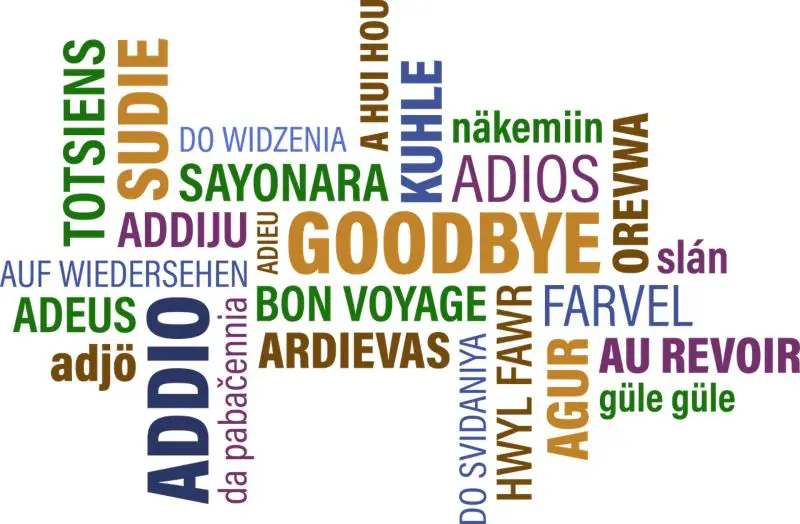
Aaaaaaaand now you know… the different languages for goodbye and how to say goodbye in every language of the world!
OVER TO YOU GUYS!
How do you say GOODBYE in your language? Do you know how to say bye in other languages? Extra points if you can speak several languages… Let me know in the comments.
Ciaooooooo,
Rai x
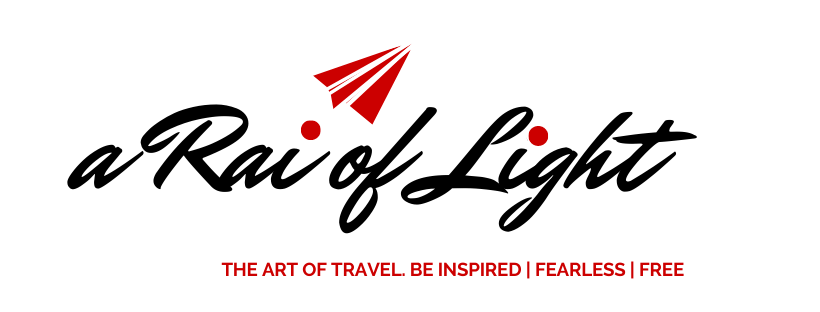

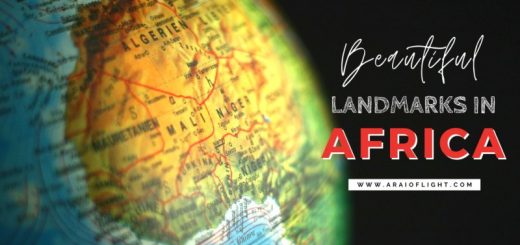

 New Here?
New Here? 












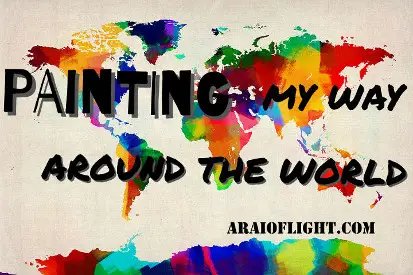
Thank you! That was really useful!
You are welcome!